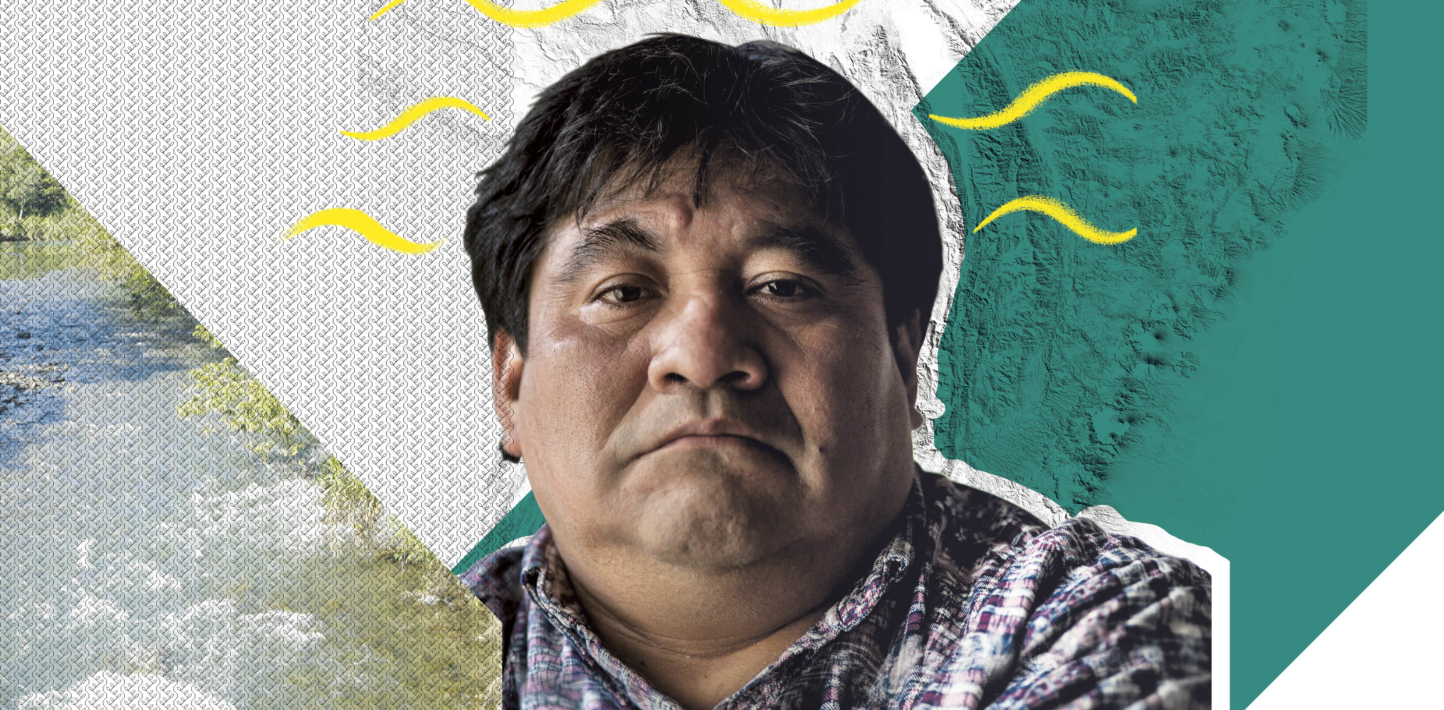On 24 March 2022, Bernardo Caal Xol was released from the penitentiary centre in Cobán after more than four years of imprisonment. The defender’s lawyers reported that a judge had ordered his release for good behaviour.
“It’s great news for Bernardo, his family and Guatemala’s Indigenous Mayan Q’eqchi’ communities that he can leave prison and be reunited with his loved ones after more than four years of being a prisoner of conscience. However, Bernardo remains convicted of a crime he did not commit and thus the Guatemalan authorities continue to criminalize him for his work in defence of human rights and the environment,” said Erika Guevara-Rosas, Americas director at Amnesty International.
After reviewing the criminal case against Bernardo Caal Xol, Amnesty International found that there was no evidence of the crimes he was accused of. The proceedings against him show similar patterns of criminalization that the organization has documented against other human rights defenders in Guatemala. Amnesty International therefore considers Bernardo Caal Xol a prisoner of conscience and has been campaigning globally for years for his immediate and unconditional release.
It’s great news for Bernardo, his family and Guatemala’s Indigenous Mayan Q’eqchi’ communities that he can leave prison and be reunited with his loved ones after more than four years of being a prisoner of conscience.
Erika Guevara-Rosas, Americas director at Amnesty International
“It’s regrettable that in Guatemala unfounded criminal prosecutions aimed at harassing and obstructing the work of human rights defenders – particularly environmentalists and Indigenous people, and those who fight against impunity and corruption – are such a common tactic. The people of Guatemala have suffered an unprecedented regression in human rights in recent years. The authorities have tried to dismantle the justice system and the social fabric, criminalizing everyone who fights for a more just and dignified country,” said Erika Guevara-Rosas.
Additional information
Bernardo Caal Xol, a 50-year-old indigenous teacher, trade unionist and defender of the rights of the Indigenous Maya Q’eqchi’ people and of land, territorial and environmental rights, has been wrongfully imprisoned since 30 January 2018 for defending the rights of the Maya Q’eqchi’ communities affected by the construction of a hydroelectric project on the sacred Cahabón river, in the department of Alta Verapaz, northern Guatemala. Despite the lack of factual evidence to support the charges, on 9 November 2018, the court in Cobán sentenced him to 7 years and 4 months in prison for the crimes of aggravated robbery and aggravated illegal detention.
It’s regrettable that in Guatemala unfounded criminal prosecutions aimed at harassing and obstructing the work of human rights defenders – particularly environmentalists and Indigenous people, and those who fight against impunity and corruption – are such a common tactic.
On 16 July 2020, Amnesty International named Bernardo Caal a prisoner of conscience. The Guatemalan human rights defender was one of the individuals included in Amnesty International’s annual and global Write for Rights campaign in 2021, during which people around the world took around half a million actions calling for Bernardo Caal’s release.
Bernardo Caal and his lawyers filed a cassation appeal with the Supreme Court in September 2021 to review the sentence for human rights violations, but the Criminal Chamber of the Supreme Court rejected it. Immediately afterwards, Bernardo Caal and his lawyers filed an injunction against this decision, which has not yet been resolved.
In Guatemala, local and international organizations have recorded high levels of attacks against human rights defenders, especially those involved in the fight against impunity and corruption, as well as journalists. The Unit for the Protection of Human Rights Defenders – Guatemala (UDEFEGUA) recorded 839 attacks against human rights defenders from January to November 2021. Guatemala is also one of the most dangerous countries in the world for defenders of land, territory and the environment, according to the latest Global Witness report. Thirteen environmental activists were killed in 2020, again the fourth highest rate of killings of land and environmental defenders per capita.


